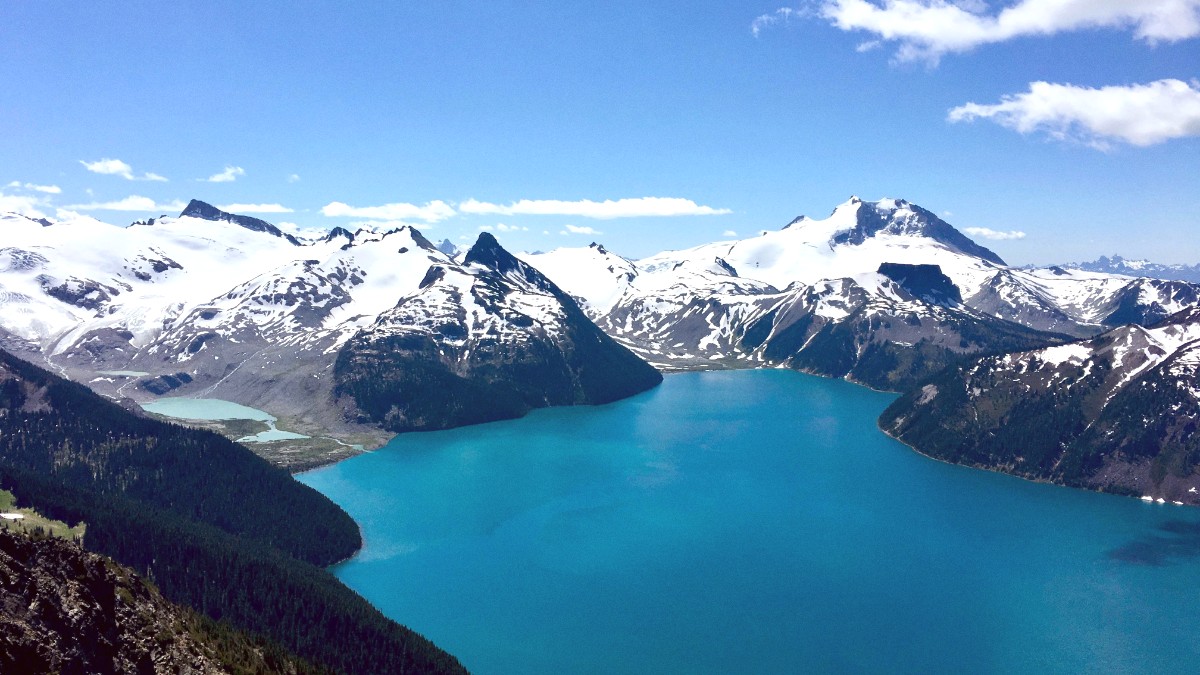
British Columbia, Canada
Whistler finds itself surrounded by provincial parks, including Garibaldi, Brandywine Falls, and Callaghan. These areas hold protected status.
Public recycling bins have wide availability throughout Whistler for paper, plastic, glass, and cans. Composting appears common in many accommodations and restaurants.
While British Columbia has abundant water, conservation remains important, especially during dry summer months. Use water mindfully.
Whistler Blackcomb implements extensive environmental programs. The community directs efforts to preserve its natural environment.
Purchasing carbon offsets for your flights is an option. Many airlines and third-party organizations present choices to mitigate the environmental footprint of your travel.
Seek hotels with environmental certifications. Many tour operators emphasize responsible wildlife viewing and low-impact activities.
Visitors are encouraged to sort waste appropriately. Look for clearly marked bins for different materials.
Whistler Blackcomb's environmental programs direct efforts to renewable energy and waste reduction. The community collectively preserves its natural environment.
Choose operators and accommodations committed to sustainability. Your choices reflect your care for the environment.
Adhere to the "Leave No Trace" principles, specifically when exploring trails and natural areas. Preserve the pristine landscapes.
By making conscious choices, you aid in the ongoing environmental efforts.
Cultural understanding deepens travel. Whistler's First Nations heritage merits respectful attention.
The Squamish Lil'wat Cultural Centre is a powerful institution for preserving and sharing the traditions of the local First Nations. Visitors gain knowledge from their programs.
Be polite and open-minded in your interactions. Respect local customs and traditions.
Respect private property. Be mindful of people's privacy in public spaces.
Whistler contains few formal religious sites. However, general respect for cultural spaces, like the Squamish Lil'wat Cultural Centre, is advised.
Whistler resides on the traditional territories of the Squamish and Lil'wat First Nations. Acknowledging their heritage deepens your connection to the land and its people.
Recognize the traditional territories you visit. Many events begin with this gesture of respect.
When invited to cultural events or ceremonies, follow the instructions of community leaders.
Your open-mindedness and respect for cultural traditions contribute to a meaningful and positive experience for both you and the local communities.
Support Whistler's local economy and ensure your visit benefits the community.
Choosing small independent shops and restaurants over large chains is an option. This distributes economic benefits more widely.
Look for ethically sourced products, especially when purchasing souvenirs or crafts. Seek out fair trade certifications where they apply.
Opt for local guides, independent restaurants, and shops. This channels your tourist dollars directly into the community, strengthening the local economy.
Do not purchase products made from endangered species. Do not engage in activities that misuse animals.
If you choose to donate, research local charities or community foundations to verify your contribution directly benefits the community.
Organizations like the Whistler Community Services Society offer examples of local groups that support residents.
These foundations often manage funds for various local needs, ensuring broad community benefit.
Verify the legitimacy and impact of any charity before donating to ensure your generosity makes a difference.
Supporting local and ethical practices reinforces a positive cycle within the community, fostering sustainable tourism and economic well-being.
By prioritizing local businesses and ethical choices, you actively contribute to the sustained prosperity and cultural integrity of Whistler.